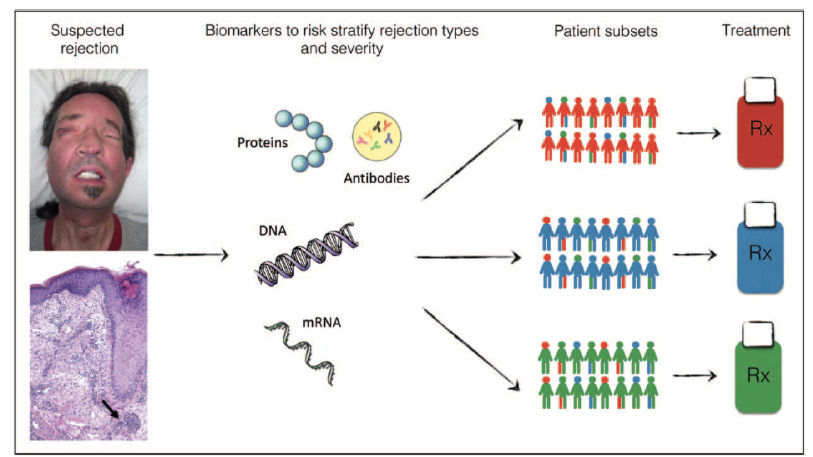Kollar B, Pomahac B, Riella LV. “Novel Immunological and Clinical Insights in Vascularized Composite Allotransplantation,”Current Opinion in Organ Transplantation 2018 2018 Dec 6. [Epub ahead of print]
Abstract
Purpose of review
Vascularized composite allotransplantation (VCA) is a promising approach to restore the quality of life of carefully selected patients that suffered extensive injury. Although acute rejection occurs very frequently, still little is known about the specific characteristics of the VCA immune response. This review aims to highlight extremity and face transplant recipients.
Recent findings
T-cell mediated rejection is the predominant mechanism of allograft injury in VCA. As current histological classification does not differentiate types of rejection, novel evidence using NanoString has determined a molecular signature that helps identify antibody-mediated rejection in comparison to T-cell mediated rejection. Additionally, long-term follow-up of VCA patients progressively reveals various features of chronic rejection, and novel immunosuppressive approaches such as costimulation blockade found its way into immunosuppressive regimens of VCA recipients, unraveling its potential benefits as well as limitations. Finally, novel noninvasive biomarkers were recently evaluated and showed promise to differentiate the severity of acute rejection, and consequently, the intensity of treatment required.
Summary
With growing knowledge about the immunobiology in VCA, novel approaches to immunosuppressive therapy and immune monitoring will help better manage patients and improve long-term VCA outcomes.

